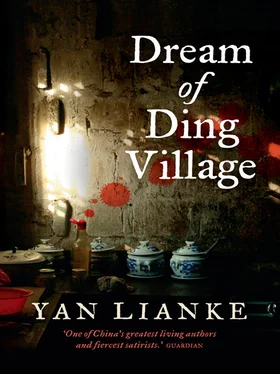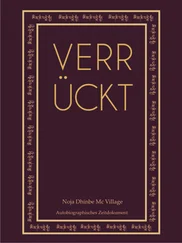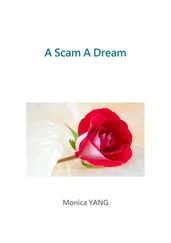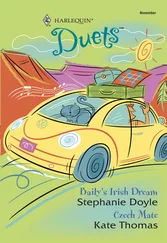Below this, Ding Yuejin and Jia Genzhu had affixed their signatures and the date. Grandpa skimmed the order once, glanced up in disbelief, then read it again more carefully, his wrinkled face twitching with annoyance. He thought about crumpling the paper into a ball and throwing it in their faces, until he noticed several young men standing behind them: Jia Hongli, Jia Sangen, Ding Sanzi and Ding Xiaoyue. All were close relatives of either Genzhu or Yuejin, young men in their late twenties or early thirties who had recently come down with the fever. Some stood with arms crossed, others leaned against the doorway, sneering at Grandpa as if he were a personal enemy who they had cornered at last.
‘You’re trying to get rid of me?’ asked Grandpa.
‘It’s clear that you’re not fit to run this school any more,’ said Genzhu. ‘Your older son milked us of our blood, then he sold off our coffins. I hear he’s selling coffins belonging to other villages now. And your younger son is no better: he’s got the fever and he comes to this school and starts fooling around with another man’s wife, his cousin’s wife, no less. Ding Shuiyang, you were a teacher. . don’t you know that that’s considered incest?’
‘So, you tell me,’ Genzhu continued, ‘do you still think you deserve to be in charge of this school?’
Then he proclaimed: ‘Starting today, you are no longer a teacher or caretaker at this school, so stop trying to tell everyone what to do.’
Grandpa stood silently in the centre of the room. He felt himself wilting, as if the muscle and bone had been stripped from his body. For a moment, it seemed as if he might collapse, but he dug in his heels and forced himself to stand his ground.
Later that evening, the lights in most of the classrooms were still burning, but the little building beside the school gate lay in darkness. The darkness was impenetrable, as if the two rooms were trapped beneath an avalanche of black stones. Grandpa and Uncle, caught between the crevices, hunkered in the inner room. Grandpa sat slumped, his face and hands wet with tears. Uncle lay on his bed, gazing out of the window at the night. He could feel the darkness bearing down upon him, pressing on his chest, making it difficult to breathe.
The atmosphere was oppressive, unbearably so.
‘Son,’ Grandpa said. ‘You’ve got to go home.’
‘Why?’
‘You’ve got to go and see Tingting, and talk her out of leaving.’
Uncle thought it over for a while and decided Grandpa was right. He had to go home.
Even this late at night, there was a crowd of people at the school gate. Jia Genzhu, his brother Genbao and their cousins Jia Hongli and Jia Sangen were still loading school desks on to carts. The cook, Zhao Xiuqin, also seemed to be helping. Uncle couldn’t hear what they were saying, but they seemed to be talking about Genbao’s upcoming wedding. Their laughter and conversation swirled through the schoolyard like muddy water down a dry riverbed, after an unexpected rainstorm.
Uncle listened for a while before coughing to announce his presence. The talk and laughter died down, and Uncle stepped through the school gate and began walking home.
When he arrived at his house, he was alarmed to see the padlock hanging from the front gate. Frantically, he groped around the edges of the wooden gate until he found two keys hidden in a crack. He opened the padlock, raced through the courtyard, unlocked the door of the house and turned on the light. He found the main room little changed, but for a layer of dust on his mother’s photograph and on the family’s ancestral shrine. He spied a heap of his unwashed shirts and trousers on a bench against the wall. Moving into the bedroom, he threw open the red wooden wardrobe and saw that Tingting and Xiao Jun’s clothes were missing. He fumbled around in a corner of the wardrobe for the money and the red bank-book that he usually kept hidden there. When he came up empty-handed, Uncle realized that Tingting had left him for good. His family was broken, his wife and son gone.
If I die tomorrow, Uncle thought, they’ll find me with two tears in my eyes: one for every good thing that I’ve lost.
1
It happened just like Jia Genzhu said it would: Uncle’s marriage was ruined, his wife and child gone, his family destroyed. It was the latest in a series of calamities to hit Ding Village.
Ruin had come early this year, with the spring.
The plain was a thick carpet of green. In the fields, the new crop of wheat was raising its head, and the soil, which had lain dormant all winter, now turned its energy to growth. Rich or poor soil alike was fertile enough at this time of year to nourish the young wheat and allow it to thrive. It would be at least another fortnight, or perhaps another month, before the relative wealth or paucity of the soil began to show. By mid-spring, when the nutrients in the sandy topsoil had been exhausted, some of the plants would become emaciated, thin and pale. But now, in the first few weeks of spring, everything was lush and green.
Grasses and wild flowers lined the roadsides, sprouting from gaps between fields and invading plots of untilled land. They grew madly, uncontrollably. . blooms of red and white, yellow and purple, sandwiched between rectangles of green like a calico print. Red stood out bold and strong against a blur of pale yellow and smudges of green. The plain was a patchwork of colour, a world in disarray, growing free and wild. Even the solitary trees had burst into life: new leaves budded from their branches, gently swaying in the breeze. It was like the whole plain was bursting into song.
Beyond the fields was the ancient path of the Yellow River, a silted, sand-strewn channel that had lain dry for centuries, perhaps millennia. A thousand yards wide at its broadest point, a hundred at its narrowest, it snaked across the Central Plain for miles and miles. No one knew its exact length: to the villagers, it seemed as boundless as the sky. A sandy swathe that lay several feet below the level of the plain, it was like a broad grey belt pulled tight around the midriff of the earth, an enduring reminder of a river defeated by time. Now that spring had turned the sandy belt to green, filling it with vegetation, the channel was indistinguishable from the landscape around it. The plain had turned into a level playing field, a vast flatness of green.
Green earth. Green sky. Green villages. All the world had become lush and green.
The wheels of industry, too, had awakened with the spring. The residents of Ding Village elementary school bustled around as if they had miraculously returned to full health, carting items from the school back to their homes. Jia Genzhu and Ding Yuejin had divided the school property among the residents: desks and chairs and blackboards, chests and washstands, beds and bedding once used in the teachers’ quarters, crossbeams and rafters and scavenged planks of wood.
Uncle had returned to the village, to his own house. Tingting, who had gone back to her hometown to stay with her mother, sent word that she didn’t want to see Uncle again as long as she lived. Or as long as he lived. The next time they met, she said, she hoped he’d be lying in a coffin. Once he was dead, she would come back to the village to sell the house and collect the furniture. And so Uncle had no choice but to leave the school and move back into his house, to keep an eye on the property and possessions that would be sold or taken after his death.
Grandpa was no longer the caretaker of the school. No longer did anyone regard him as a caretaker, or treat him as a teacher. He was just an old man from the village who happened to live in the school. Disconnected from the residents, he took no part in their meals or medicines, conversations or chess games, or the ups and downs of their disease. Nor did anyone show him much respect. Although he still lived beside the main gate, few residents passing through gave him so much as a nod. If they did deign to greet him, it was only because he had greeted them first. If someone did nod his way, he returned the greeting eagerly. As for what was being said or done inside the classrooms, as for what the several dozen residents said or did in their spare time, it had absolutely nothing to do with him. He was lucky that they let him live in the school at all.
Читать дальше












